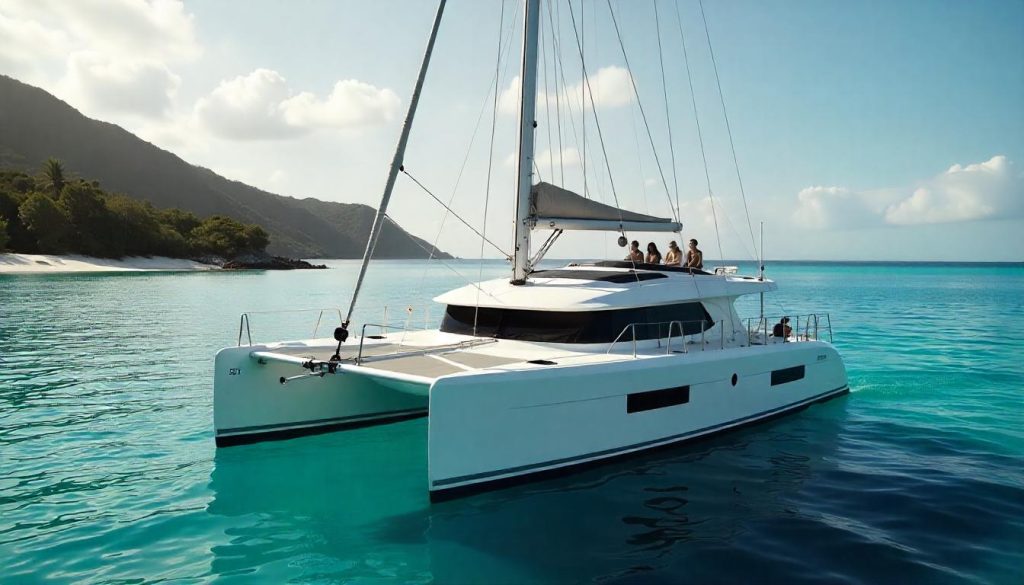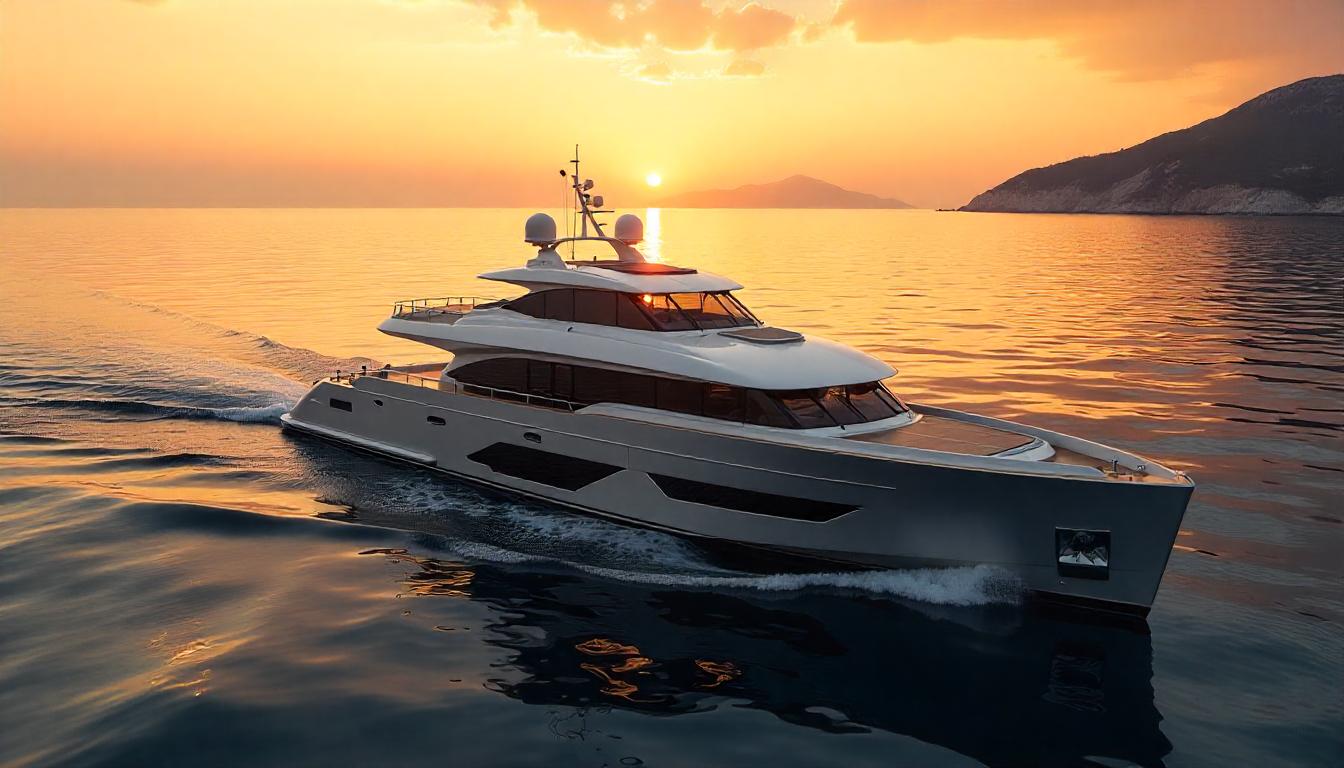De opkomst van elektrische en hybride jachten in 2025 markeert een transformatieve verschuiving in de jachtindustrie, gedreven door duurzaamheid en technologische innovatie. Sinds maandag 26 mei 2025 om 10:23 uur +05 winnen deze milieuvriendelijke schepen aan populariteit bij milieubewuste eigenaars en verhuurders. Met de vooruitgang in batterijtechnologie en de groeiende vraag naar groenere opties groeit de markt snel. Dit artikel gaat in op de huidige trends, de groei van de markt en gebruikerservaringen en biedt inzicht in de toekomst van groene jachtontwikkelingen.
Markttrends en groei
De markt voor elektrische en hybride jachten kent een aanzienlijke groei, aangewakkerd door milieuvoorschriften en de vraag van consumenten. Prognoses geven aan dat de markt zal groeien van $6,01 miljard in 2025 tot $20,1 miljard in 2035, met een CAGR van 11,59%. Hybride modellen domineren, met meer dan 60% van het marktaandeel vanwege hun flexibiliteit en brandstofefficiëntie. Europa loopt voorop, ondersteund door strenge emissiewetten, terwijl Azië-Pacific zich ontpopt als een groeihub met toenemende investeringen.
Daarnaast integreren fabrikanten zonnepanelen en lichtgewicht composieten, wat het bereik en de efficiëntie verbetert. Overgaand hierop, weerspiegelt de opkomst van elektrische en hybride jachttechnologie een bredere verschuiving binnen de industrie naar duurzaamheid. Bijgevolg positioneren deze trends milieuvriendelijke jachtervaringen als een belangrijke sector in het maritiem toerisme.
Technological Innovations
Hybride jachttechnologie evolueert met next-generation oplossingen. Lithium-ion batterijen voeden elektrische motoren, wat zorgt voor stille werking en verminderde uitstoot. De Silent 80 jacht genereert bijvoorbeeld stroom via geïntegreerde zonnepanelen en bereikt 12+ kW. Bovendien combineren hybride systemen diesel- en elektrische modi, wat operationele flexibiliteit biedt voor lange reizen.
Verder optimaliseert slimme elektronica het energieverbruik, terwijl verbeteringen in het ontwerp van de romp de hydrodynamica verbeteren. Overgaand hierop, verbeteren deze innovaties het comfort en de prestaties van de gebruiker. Daarom stimuleert de technologische vooruitgang de aantrekkingskracht van duurzame jacht trends.
Gebruikerservaringen
Gebruikers melden positieve ervaringen met elektrische en hybride jachten, waarbij ze de stille, emissievrije vaart waarderen. Eigenaren van de McConaghy Panther-serie genieten van naadloze zonne-integratie, waardoor er voldoende stroom aan boord wordt gegenereerd. Een model van 56 voet biedt bijvoorbeeld een serene rit, ideaal voor kustverkenningen, met minimale impact op het milieu.
Daarnaast waarderen chartergasten de verminderde trillingen en lagere onderhoudskosten in vergelijking met traditionele jachten. Overgaand hierop, trekken deze voordelen milieubewuste reizigers aan. Bijgevolg benadrukt gebruikersfeedback de praktische voordelen van milieuvriendelijke jachtervaringen.

Uitdagingen en kansen
Hoge initiële kosten en een beperkte laadinfrastructuur vormen uitdagingen voor de opkomst van elektrische en hybride jachten. Een volledig elektrisch jacht kan vier keer zoveel kosten als een dieselmodel, wat sommige kopers afschrikt. Overheidsstimulansen en een groter batterijbereik pakken deze hindernissen echter aan.
Bovendien opent het achteraf inbouwen van hybride systemen in bestaande jachten nieuwe mogelijkheden voor exploitanten van vloten. De overgang hiernaartoe, partnerschappen met technologiebedrijven versnellen innovatie. Daarom stimuleert het overwinnen van uitdagingen de groei van de markt voor elektrische en hybride jachten.
Future Outlook
De toekomst van groene jachtontwikkelingen ziet er veelbelovend uit, met hybride en elektrische jachten die de norm worden. Experts voorspellen dat in 2030 20% van de nieuwe jachten elektrisch aangedreven zal zijn, gedreven door strengere regelgeving en consumentenvoorkeuren. Bestemmingen zoals de Galápagos, met milieuvriendelijk beleid, zullen de vraag naar duurzame charters stimuleren.
Bovendien belooft voortdurende R&D in batterijtechnologie langere afstanden en sneller opladen. Overgaand hierop maakt de industrie zich op voor een duurzame transformatie. Bijgevolg zal de opkomst van elektrische en hybride jachten het luxueuze jachtvaren herdefiniëren.
Conclusie
De opkomst van elektrische en hybride jachten in 2025 weerspiegelt een cruciaal moment in duurzaam zeilen, waarbij innovatie wordt gecombineerd met ecologische verantwoordelijkheid. Marktgroei, geavanceerde technologie en positieve gebruikerservaringen onderstrepen hun potentieel. Naarmate de industrie zich ontwikkelt, zullen milieuvriendelijke jachtervaringen de toekomst van maritiem reizen vormgeven en een schoner en stiller alternatief op het water bieden.

 De opkomst van elektrische en hybride jachten: markttrends en gebruikerservaringen">
De opkomst van elektrische en hybride jachten: markttrends en gebruikerservaringen">
